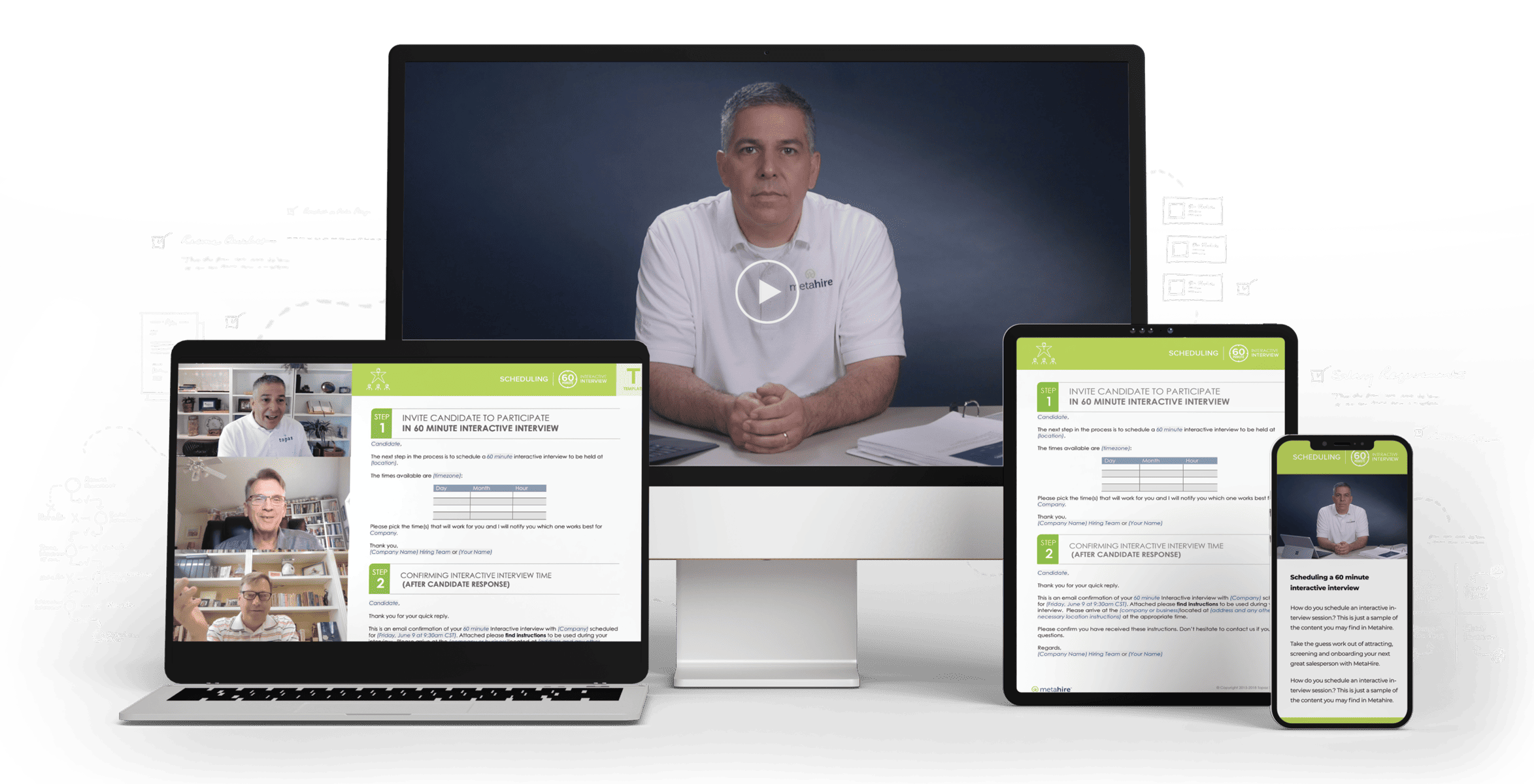Sales recruitment can be a daunting task for small businesses — oftentimes, making a bad sales hire can be the difference between success and failure. Small and medium-sized companies aim to ensure they are hiring the best candidate for the job, but many don’t have the resources of larger businesses. So, what happens when a business doesn’t have a lot of money to spend on recruitment? Don’t worry — we’ve got four tips to help you find and hire the best salesperson for your small business.
Salespeople are often hired for their ability to sell products and services. But there are other tactics that will help you choose the right candidate. With these steps, you’ll be able to confidently find and hire the best salesperson for your small business!
1. Ask them about their experience.
One of the most important aspects of the interview process is asking candidates about their previous experiences. This gives you a chance to learn about their strengths and weaknesses and get a better sense of their personality and communication skills. By asking questions about their past jobs, you’ll be able to get a better idea of how they would perform in the role you’re hiring for.
Additionally, you’ll be able to see how they handle difficult situations and whether or not they’re able to problem-solve effectively. Asking questions about candidates’ previous experiences is an essential part of the interview process and will help you make the best hiring decision for your company. Look for someone who has experience in the industry you’re in, expertise in the type of sales cycle (length, customer, CRM system, etc.), and a similar sales style to the one you’re looking for. The more specific you are in your job description about your requirements and in your job posting about your expectations, the more likely you’ll interview candidates aligned with your company’s goals and sales style.
2. Does their resume show off their skills?
If you’re looking for a top-notch salesperson, it’s important to ensure their resume reflects their skills and experience. Things to scan for in an initial resume screening:
- A strong track record of meeting and exceeding targets
- Ability to demonstrate past success in customer service, relationship building, and communication
- Experience using a CRM system (HubSpot, Salesforce, etc.)
- Additional skills such as presentation building, social media marketing, and copywriting
- Proven leadership abilities
Their resume should show that they can work independently and are self-motivated. A top salesperson will have a strong work ethic and be able to show that they’re always looking for new opportunities to close deals. If a candidate’s resume doesn’t reflect these qualities, they may not be the right fit for your organization.
Similarly, a good salesperson should be quick to understand your product or service. This means they’ll be able to hit the ground running without needing extensive training. As a result, when you’re reviewing resumes, be sure to look for candidates who have tailored their resumes and cover letters to fit your company’s job description or solutions.
Want to stay in touch with the Topaz Sales Consulting team? Subscribe to our quarterly newsletter to hear major updates in the sales and hiring industries.
3. Check out their social media profiles, specifically LinkedIn.
In today’s business world, social media is essential for building relationships and connecting with potential customers. So, it stands to reason that sales recruiters should also use social media to find top sales candidates. LinkedIn is a particularly valuable platform for sales recruiters, as it provides insight into a candidate’s professional history and connections.
When you’re reviewing a candidate’s LinkedIn profile, pay attention to their summary and work history. This will give you an idea of their sales experience and skills similar to their resume. If you take a look at their recommendations and endorsements, you’ll get a pretty good idea of how others (managers, colleagues, clients, etc.) perceive their work.
Finally, review their recent activity on LinkedIn. A candidate’s social media activity can also be used to gauge a candidate’s online presence and activity level. If they’re regularly sharing articles and industry news, it shows that they’re keeping up with the latest trends and will likely be tuned in to whatever your company is doing. Plus, active users who regularly post updates and engage with their network are more likely to be successful in sales roles that require prospecting and relationship-building — a bigger value-add to your team. So, checking out a candidate’s LinkedIn profile is a great way to get a better sense of their suitability for your sales roles.
4. Do they have any certifications or training?
As a sales recruiter or hiring team, it’s important to check if your candidate has any certifications or training. If you hire someone who has no experience selling, then you’ll probably end up with an underperforming employee. However, if you hire someone who has some experience, then you’ll have an easier time getting them to do what you need and ultimately convert sales.
The best way to find out if a candidate has any sales training is to ask them about it during the interview process. Certifications and training can show that a candidate has the necessary skills to be successful in sales. For example, depending on the type of sales role, you may want to see certifications related to CRM proficiencies, copywriting skills, and so forth. Checking for certifications and training can help you weed out bad fits for your sales team, helping you avoid costly hiring mistakes and unexpected turnover.
Topaz’ Takeaway
When it comes to hiring sales talent, small businesses need to be extra careful. When your resources are limited, it’s tough to know where to start. The salespeople you bring on will directly impact your bottom line, so it’s important to take the time to find the right fit. Resume content, LinkedIn profiles, social media activity, and certifications can all help determine whether or not a sales hire is a good fit for your organization. By taking the time to review these factors, you can be sure that you’re hiring the best possible salespeople for your team.






